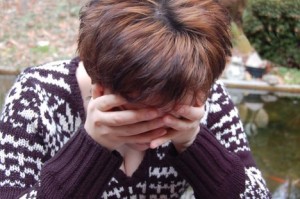One of the foundational ideas of Human Development and Family Science is that people do not develop in a vacuum – their development is shaped not only by inherited characteristics and predispositions but also directly by the different environments they inhabit and indirectly via forces that act on those environments.
We are often quick to blame parents when children develop problems, and much research on parenting is directed at uncovering the effects of “good” and “bad” parenting on children. However, we must remember that the adults raising children are not exempt from the effects of their own biological and social environments. Especially key to effective parenting is adults’ mental health.
HDFS faculty and students continue to make important contributions to understanding the role of mental health in parenting. Faculty member Xin Feng has long studied the ways in which depressed mothers’ interactions with their children differ from those of non-depressed mothers. And, i n an intriguing new study, faculty members Natasha Slesnick and Xin Feng, along with graduate student Brittany Brakenhoff and collaborator Gregory Brigham, examined the role of substance use in mothers’ parenting and found that although all substance using mothers struggled with parenting, alcohol-using mothers demonstrated more negative parenting than opioid-using mothers.
n an intriguing new study, faculty members Natasha Slesnick and Xin Feng, along with graduate student Brittany Brakenhoff and collaborator Gregory Brigham, examined the role of substance use in mothers’ parenting and found that although all substance using mothers struggled with parenting, alcohol-using mothers demonstrated more negative parenting than opioid-using mothers.
Moreover, recent research by HDFS post-doc Lieny Jeon and faculty members Cynthia Buettner and Tasha Snyder has extended knowledge regarding the important role of adult mental health to teachers. In an article just published in the prestigious Journal of Counsulting and Clinical Psychology, Lieny and her colleagues showed that preschool teachers’ depression is associated with young children’s behavior problems, in part indirectly through the quality of the child care environment. Read the OSU press release here: http://news.osu.edu/news/2014/05/13/preschool-teacher-depression-linked-to-behavioral-problems-in-children/
One of my favorite quotes, attributed to John Bowlby, is: “If a community values its children it must cherish their parents.”
I propose that to this sentiment, we must add: “and their teachers!”
